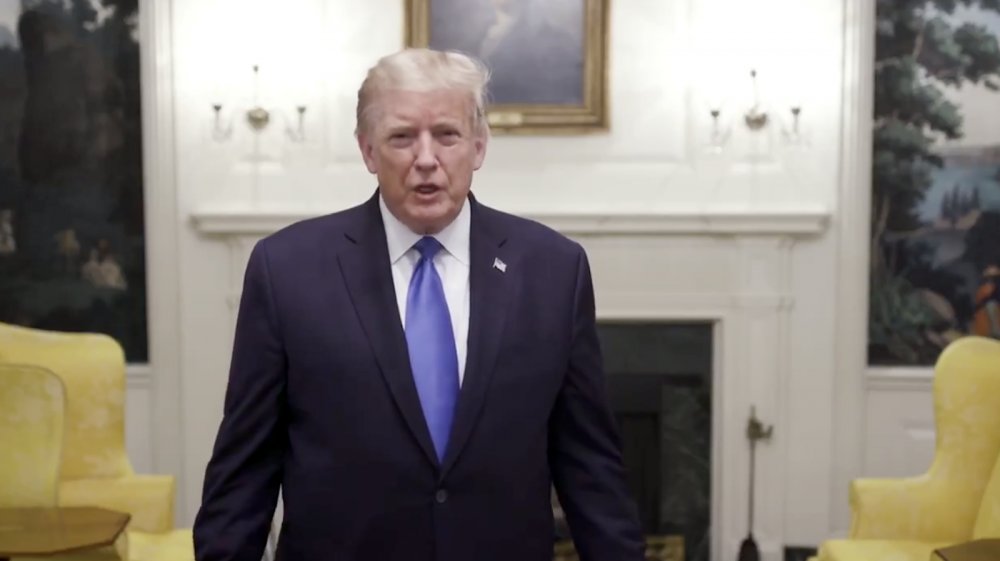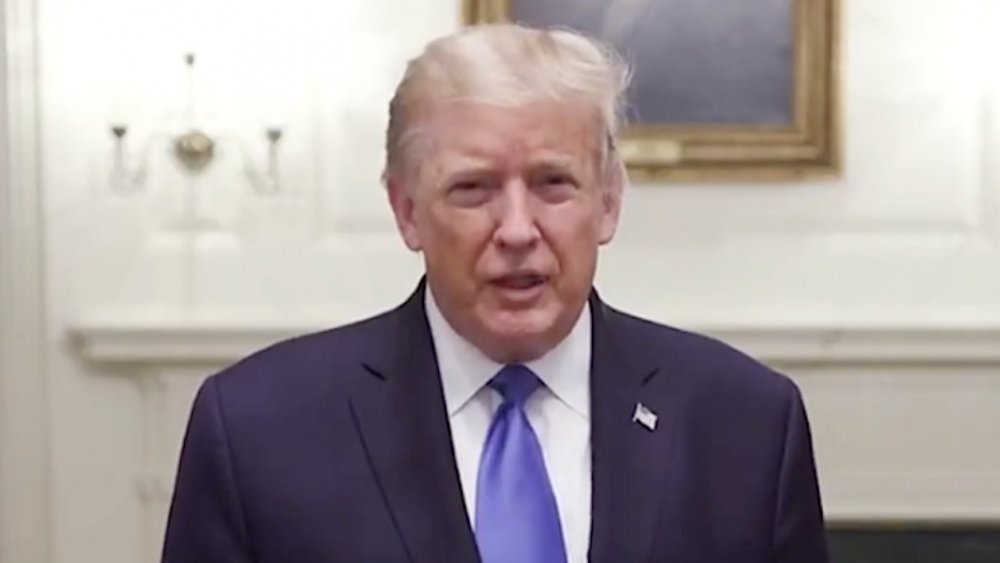Body Language Expert Reveals How Trump Really Feels In His Pre-Hospital Video Message
Since the news broke on Thursday night, confirmed by Donald Trump himself, that he and First Lady Melania Trump had tested positive for COVID-19, the world has been waiting on a report of how the president was really feeling in the wake of his diagnosis. In his tweet, Trump said, "Tonight, @FLOTUS and I tested positive for COVID-19. We will begin our quarantine and recovery process immediately. We will get through this TOGETHER!"
Surprisingly, another 17 hours went by before we heard from the prolific tweeter again. In a video message posted to Twitter late in the day Friday, Trump, donning a suit and tie while standing in a room in the White House, said in part, "I want to thank everybody for the tremendous support. I'm going to Walter Reed hospital, I think I'm doing very well, but we're going to make sure things work out..."
Conspiracy theories immediately started flying about whether or not the video was faked, with supporters and detractors both offering their opinions. But who better than an expert to give her opinion on Trump's video message?
In an interview with The List, body language expert and psychologist Dr. Reneé Carr, who is also a political and corporate advisor, explained the subtle cues that Trump may have dropped in his message.
Expert says Trump is likely 'humbled by this experience'
Dr. Carr explained, "In this tweet, he is using humble body language. In the beginning he flailed his arms open to the side, in a submissive gesture of accepting the diagnosis as well as accepting the future criticism that will likely result from his contraction of the coronavirus." She continued, "Toward the end, he attempts to regain his composure and to exhibit a strong presence by straightening his shoulders and verbally reminding the public of his power and ability to reciprocate kindness by stating, 'I will never forget it.'"
But it may be too early too really say how Trump is feeling. Carr further analyzed, "Right now, he is in the initial stages of showing symptoms. Therefore, he is not in a higher level of fatigue or aggressive symptoms. However, his subdued presentation and softer vocal tones are less reflective of his current stage of symptomatology and more reflective of him being humbled by this experience."

